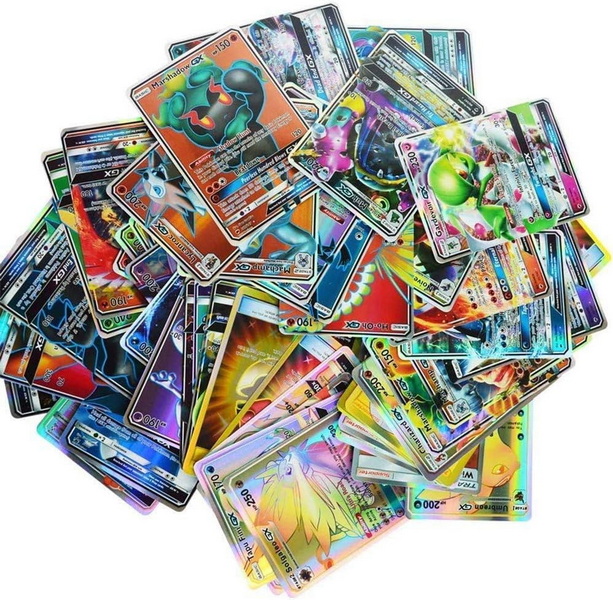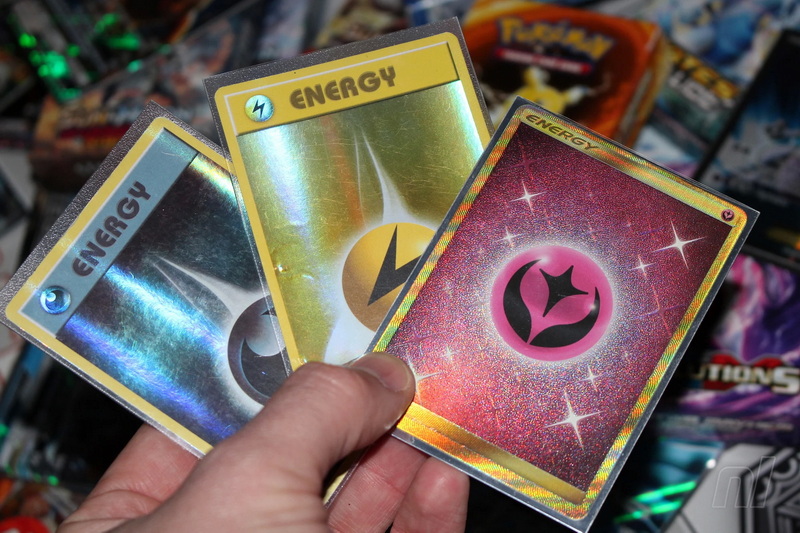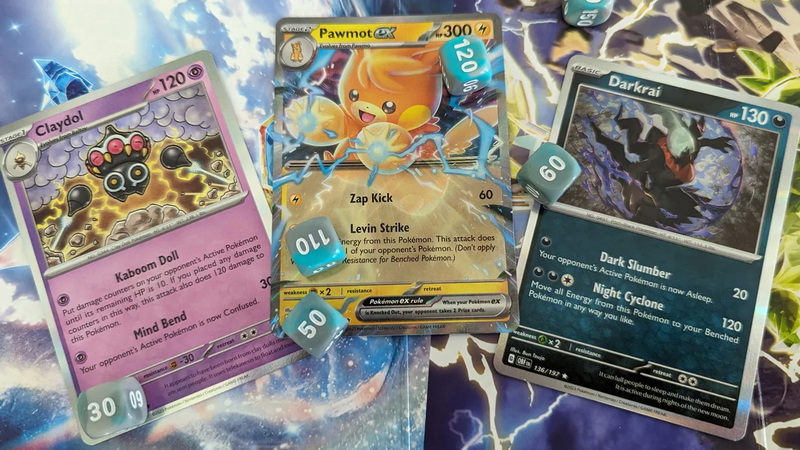Content Menu
● Understanding the Basics
● Setting Up the Game
● Turn Structure
● Winning the Game
● Special Conditions and Damage
● Building Your Deck
>> Deck Building Strategies
● Advanced Strategies for Success
● Tips for Improving Your Gameplay
● Conclusion
● Frequently Asked Questions
>> 1. What is the objective of the Pokémon TCG?
>> 2. How many cards should be in my deck?
>> 3. Can I play multiple Trainer cards in one turn?
>> 4. What happens if I run out of cards in my deck?
>> 5. How do I evolve my Pokémon?
● Citations:
The Pokémon Trading Card Game (TCG) is a strategic and engaging game that allows players to battle against each other using decks of collectible cards featuring various Pokémon. This guide will provide a comprehensive overview of how to play the Pokémon TCG, including the basic rules, card types, gameplay mechanics, strategies for winning, and advanced techniques to elevate your game.

Understanding the Basics
Before diving into the gameplay, it's essential to understand the basic components of the Pokémon TCG:
- Deck: Each player needs a deck of exactly 60 cards. A deck can consist of Pokémon cards, Energy cards, and Trainer cards.
- Card Types:
- Pokémon Cards: These represent the Pokémon used in battles. They come in different stages:
- Basic Pokémon: Can be played directly onto the field.
- Stage 1 and Stage 2 Pokémon: Evolve from Basic Pokémon.
- Energy Cards: Required to perform attacks and use abilities. There are various types of energy, corresponding to different Pokémon types.
- Trainer Cards: These include Item cards, Supporter cards, and Stadium cards that provide various effects during gameplay.
Setting Up the Game
To start a game of Pokémon TCG, follow these steps:
1. Shuffle Your Deck: Each player shuffles their 60-card deck thoroughly.
2. Draw Initial Cards: Players draw seven cards from their deck.
3. Mulligan Rule: If a player has no Basic Pokémon in their hand after drawing, they must reveal their hand to their opponent, shuffle it back into their deck, and draw seven new cards. For each mulligan taken by a player, the opponent draws one additional card.
4. Place Prize Cards: Each player sets aside six cards from their deck as Prize cards. These are placed face down.
5. Active and Benched Pokémon: Players place one Basic Pokémon face down as their Active Pokémon (the one that will fight) and can place up to five additional Basic Pokémon on their Bench.
6. Coin Flip: Players flip a coin to determine who goes first. The player who wins the flip chooses whether to go first or second.
Turn Structure
Each player's turn consists of three main parts:
1. Draw Phase: At the beginning of their turn, players draw one card from their deck.
2. Action Phase: Players can perform several actions in any order:
- Play Basic Pokémon from their hand onto their Bench (up to five).
- Evolve a Pokémon by placing a Stage 1 or Stage 2 card on top of the appropriate Basic or Stage 1 Pokémon.
- Attach one Energy card from their hand to one of their Pokémon (either Active or Benched).
- Play any number of Item cards.
- Play one Supporter card (only one per turn).
- Play one Stadium card (only one per turn).
- Retreat their Active Pokémon by paying its retreat cost with Energy.
- Use any abilities on their Pokémon.
3. Attack Phase: After completing actions, players can attack the opponent's Active Pokémon using an attack listed on their Active Pokémon's card. They must have enough Energy attached to perform the attack.
Winning the Game
A player wins the game by achieving one of three conditions:
- Collecting all six Prize cards by knocking out six of the opponent's Pokémon.
- Knocking out an opponent's Active Pokémon when they have no Benched Pokémon available.
- Forcing the opponent to run out of cards in their deck so they cannot draw at the beginning of their turn (known as "decking").
Special Conditions and Damage
Understanding special conditions is crucial for strategy:
- Confused: The affected Pokémon must flip a coin at the start of its turn; if tails, it takes damage and cannot attack.
- Asleep: The affected Pokémon cannot attack or retreat until it wakes up (typically at the end of its owner's next turn).
- Paralyzed: The affected Pokémon cannot attack or retreat during its next turn.
- Poisoned: The affected Pokémon takes damage at the end of each turn until it is healed or knocked out.
Damage counters are placed on a Pokémon when it takes damage from attacks. If a Pokémon's total damage equals or exceeds its Hit Points (HP), it is knocked out and sent to the discard pile along with any attached cards.

Building Your Deck
Creating an effective deck is key to success in the Pokémon TCG:
- Aim for a balanced mix of Pokémon, Energy, and Trainer cards.
- Include multiple copies (up to four) of essential cards for consistency.
- Consider synergy between your cards; certain combinations can enhance your strategy significantly.
- Test your deck against friends or through online platforms to refine your strategy.
Deck Building Strategies
When building your deck, consider these strategies:
- Choose a Strategy Type:
- *Aggro*: Focuses on dealing damage quickly and overpowering opponents early in the game.
- *Control*: Aims to disrupt your opponent's strategy while slowly building your win conditions.
- *Combo*: Relies on specific card combinations for powerful effects.
- *Stall*: Focuses on durability with high HP Pokémon and healing cards.
- Select Key Cards:
- Identify your main attacker—often a powerful Basic or Evolution card—and build around its strengths.
- Include support Pokémon that enhance your primary strategy through card drawing or energy acceleration.
Advanced Strategies for Success
To excel in the game, consider these advanced strategies:
- Mastering Evolutions: Evolving your Pokémon is key to unleashing their full potential. Include a good mix of Basic, Stage 1, and Stage 2 Pokémon in your deck for maximum evolution opportunities.
- Exploiting Weaknesses and Resistances: Each type has inherent weaknesses and resistances; familiarize yourself with these relationships to build decks that exploit your opponent's vulnerabilities while minimizing your own.
- Harnessing Abilities and Combos: Many cards have unique abilities that provide strategic advantages; study these abilities and look for ways to create powerful combos within your deck.
- Navigating the Metagame: Stay informed about popular decks and strategies within the competitive scene; this knowledge can help you anticipate opponents' moves and adapt accordingly.
Tips for Improving Your Gameplay
To enhance your skills further:
- Practice regularly; experience helps you anticipate opponents' moves.
- Watch experienced players through tournaments or online videos for insights into advanced strategies.
- Experiment with different deck compositions; flexibility can lead you to discover new winning strategies.
- Take notes during matches; tracking your performance can help identify areas for improvement over time.
Conclusion
The Pokémon Trading Card Game offers an exciting blend of strategy, luck, and creativity. With practice and understanding of its mechanics, players can develop effective strategies and enjoy countless hours of gameplay with friends or in competitive settings. Whether you are just starting out or looking to refine your skills further, mastering both basic rules and advanced techniques will significantly enhance your experience in this dynamic game.

Frequently Asked Questions
1. What is the objective of the Pokémon TCG?
The objective is to knock out your opponent's Pokémon and collect all six Prize cards or force them to run out of cards in their deck.
2. How many cards should be in my deck?
Each deck must contain exactly 60 cards.
3. Can I play multiple Trainer cards in one turn?
Yes, you can play any number of Item cards but only one Supporter card and one Stadium card per turn.
4. What happens if I run out of cards in my deck?
If you cannot draw a card at the beginning of your turn because your deck is empty, you lose the game.
5. How do I evolve my Pokémon?
You can evolve a Basic Pokémon by placing a Stage 1 or Stage 2 card on top of it during your turn; however, you cannot evolve a newly played Basic Pokémon in the same turn it was played.
Citations:
[1] https://en.wikipedia.org/wiki/Collectible_card_game
[2] https://www.youtube.com/watch?v=Syx6UJtMQRQ
[3] https://gameon.games/blogs/pokemon-trading-card-game/advanced-strategies-and-gameplay-mechanics-for-pokemon-tcg-masters-part-2-of-3
[4] https://blockapps.net/blog/the-role-of-pokemon-tcg-in-the-broader-trading-card-market/
[5] https://readomax.com/pokemon-tcg-deck-building-101-a-comprehensive-guide/
[6] https://pkmhobby.com/blogs/cards/mastering-the-pokemon-tcg-expert-tips-strategies-and-collecting-secrets
[7] https://www.thegamer.com/pokemon-tcg-live-pro-strats-tips-tricks/
[8] https://sixprizes.com/2010/11/04/a-grizzled-veterans-guide/
[9] https://www.youtube.com/watch?v=acw7lveJuls
[10] https://gamerant.com/pokemon-tcg-pocket-special-shop-ticket-consume-rare-card-guide/
[11] https://www.reddit.com/r/PTCGP/comments/1hj2fj5/why_cant_this_game_remember_the_basic_text_of/
[12] https://www.pokebeach.com/forums/threads/how-to-write-a-pokemon-tcg-article.100762/
[13] https://www.bluestacks.com/blog/game-guides/pokemon-tcg-pocket/ptcg-strategy-guide-en.html
[14] https://www.facebook.com/groups/825762998004232/posts/1675063086407548/
[15] https://darkwolfcollectibles.com.au/ultimate-guide-to-pokemon-tcg-mastering-the-game-collecting-tips-and-investment-strategies/
[16] https://www.8bitbeyond.com/blogs/news/from-beginner-to-pro-level-up-your-pokemon-trading-card-game-with-these-how-to-tips
[17] https://www.youtube.com/watch?v=oZlXHUyGv10
[18] https://www.reddit.com/r/pkmntcg/comments/3luexw/pokemon_deck_building_a_complete_guide/
[19] https://www.justinbasil.com/guide/deck-strategy
[20] https://variety.com/2024/digital/news/pokemon-trading-card-pocket-game-release-date-1236115680/
[21] https://www.danireon.com/en-us/blogs/pokemon-blog/ultimate-beginners-guide-to-pokemon-cards
[22] https://www.reddit.com/r/pkmntcg/comments/10k3hud/advanced_tactics_and_strategies_ways_to_see_the/
[23] https://www.pokemon.com/us/strategy/designing-a-deck-from-scratch
[24] https://www.youtube.com/watch?v=8Wceu8JVCfc
































